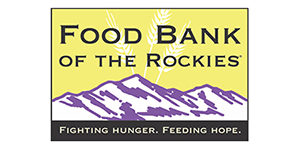PRESS RELEASE – WE ACCEPT ALL TYPES OF FOOD DONATIONS!
We Accept All Types of Food Donations!
From fresh and vegetables to meat and dairy products, we accept food donations of any kind. Your food donations are vital in helping our mission to feed families, veterans, and seniors who face food insecurity in our community. Help us feed it forward today!
Where to Take Your Food Donations
We are located at Westminster Presbyterian Church, 3990 W. 74th Ave. (Corner of Bradburn Blvd. and 74th Ave). You can drop off your donations between 10 am. and 1 p.m. Monday through Thursday. Please contact the church office before you arrive at 303-429-8508. When you arrive, please park by the Food Pantry (green door facing parking lot).
Most-Wanted Food Donations
- Dried or canned beans, including chili.
- Canned meat (such as SPAM, roast beef or Vienna Sausages), tuna, salmon.
- Canned pasta meals, such as ravioli.
- Peanut butter.
- Canned fruits and vegetables.
- Rice.
- Spaghetti noodles.
- Cereal (such as oatmeal, flakes, or Cheerios type cereal).
- Excess fresh fruit and vegetables from your family garden.
Please make sure all packaging is intact and unopened. Please be aware of expiration dates and eliminate any expired items from your donation.
We are required to toss opened packages, food in badly damaged containers, and most expired food items, particularly if they are more than 1 year past their expiration date.
Good Samaritan Food Donation Act
Millions of pounds of food and groceries go to waste each year. To encourage companies and organizations to donate healthy food that would otherwise go to waste, they are protected from criminal and civil liability under the Good Samaritan Food Donation Act. On October 1, 1996, President Clinton signed this act to encourage donation of food and grocery products to nonprofit organizations for distribution to individuals in need. This law:
- Protects you from liability when you donate to a non-profit organization.
- Protects you from civil and criminal liability should the product donated in good faith later cause harm to the recipient.
- Standardizes donor liability exposure.
- Sets a floor of “gross negligence” or intentional misconduct for persons who donate grocery products.

 We are a 501(c)3 non-profit made up of two food pantries with a focus on improving the quality of life for our neighbors in Westminster. We provide emergency food to hungry seniors, adults, and children in Westminster, Colorado.
Contact
Paul Langley
plangley12672@aol.com
We are a 501(c)3 non-profit made up of two food pantries with a focus on improving the quality of life for our neighbors in Westminster. We provide emergency food to hungry seniors, adults, and children in Westminster, Colorado.
Contact
Paul Langley
plangley12672@aol.com
 Food Pantry Hours
M/W/Th, 2:45 - 3:15
Tues, 5:30-6:00.
Location
3990 West 74th Avenue
Westminster, Colorado 80030
(303) 429-8508
Food Pantry Hours
M/W/Th, 2:45 - 3:15
Tues, 5:30-6:00.
Location
3990 West 74th Avenue
Westminster, Colorado 80030
(303) 429-8508